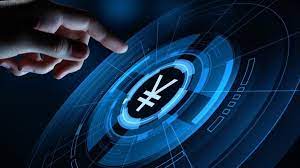
China recently launched the latest round of pilot trials of its new digital currency, with reported plans of a major roll-out by the end of the year and ahead of the Winter Olympics in Beijing in February 2022.
Daily Current Affairs Quiz 2021
Officially titled the Digital Currency Electronic Payment (DCEP), the digital RMB (or Renminbi, China’s currency) is, as its name suggests, a digital version of China’s currency.
It can be downloaded and exchanged via an application authorised by the People’s Bank of China (PBOC), China’s central bank.
China is among a small group of countries that have begun pilot trials; others include Sweden, South Korea and Thailand.
Unlike an e-wallet such as Paytm in India, or Alipay or WeChat Pay, which are the two dominant apps in China, the Digital RMB does not involve a third party. For users, the experience may broadly feel the same.
But from a “legal perspective”, the digital currency is “very, very different”. This is legal tender guaranteed by the central bank, not a payment guaranteed by a third-party operator. There is no third-party transaction, and hence, no transaction fee.
Unlike e-wallets, the digital currency does not require Internet connectivity. The payment is made through Near-field Communication (NFC) technology.
Also, unlike non-bank payment platforms that require users to link bank accounts, this can be opened with a personal identification number.





